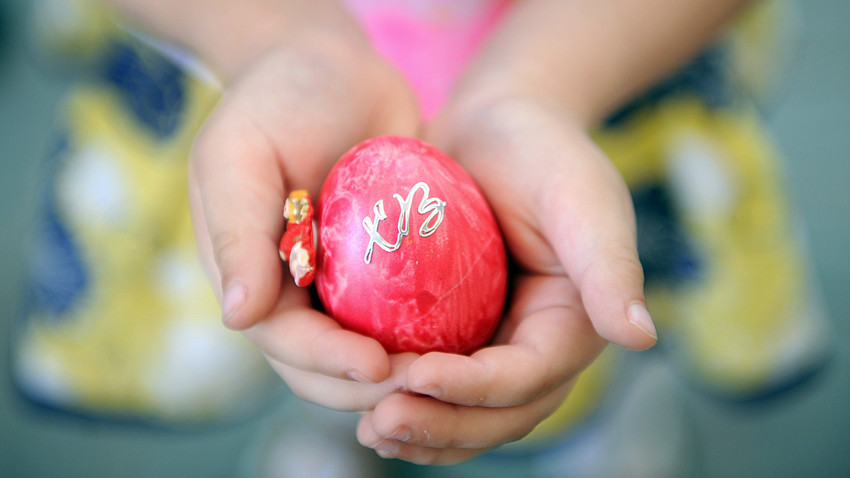
A girl holding an Easter egg on the eve of the Orthodox Easter at the Cathedral of Our Lade of Don.
Valery Matytsin/TASS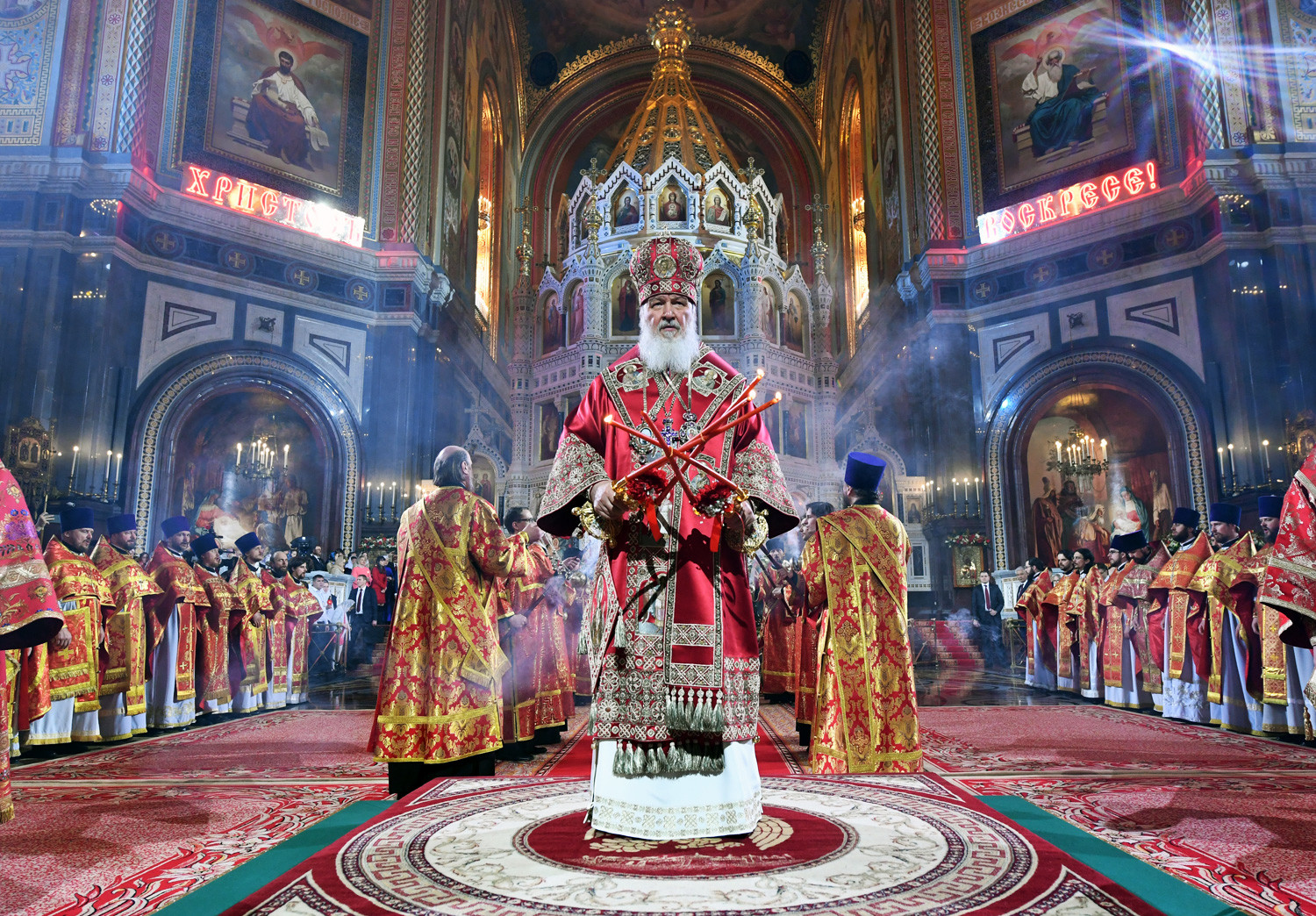
Patriarch Kirill of Moscow and All Russia during an Easter service at the Christ the Savior Cathedral in Moscow.
Sergey Pyatakov/SputnikAfter this, much of the procession goes home to bed, but the most religious devotees strap themselves in for a long, colorful procedure, which usually ends early in the morning.
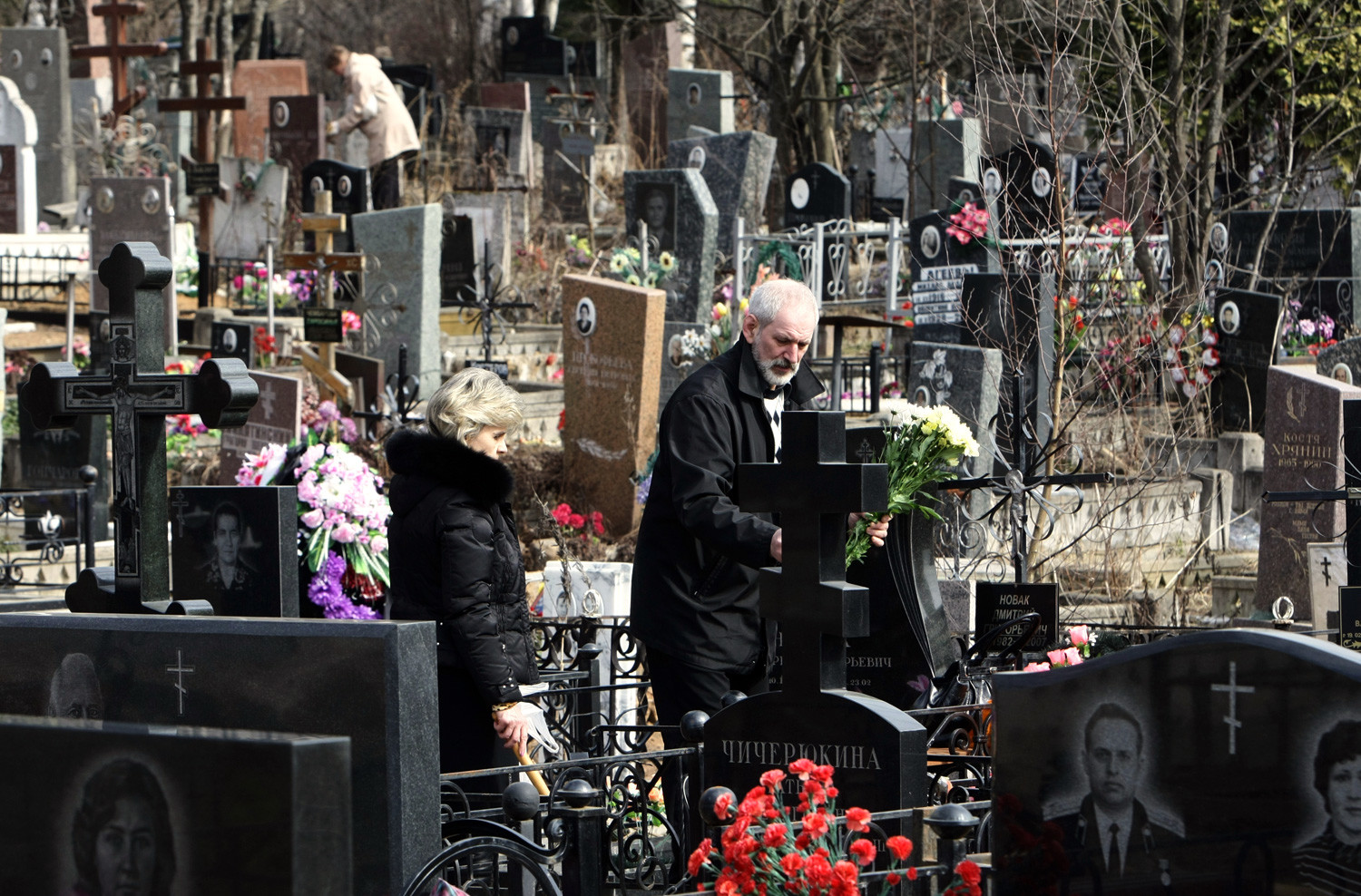
Muscovites at Mitino cemetery on Easter Sunday.
Georgiy Kurolesin/SputnikPaying respects to the dead on Easter Sunday has been a tradition for centuries, and was an Easter Sunday staple during Soviet times. Many Russians pay homage to dead relatives by bringing food from the feast, such as eggs and kulich [Russian Easter cake], to the graveside.
This is a Russian tradition that has its origins in paganism rather than Orthodox and is generally only observed by Russia’s secular population. The Orthodox Church has advocated firmly against this tradition, with Archbishop Vsevolod Chaplin once claiming, “there is no greater sin than praying for the deceased on Easter Sunday.”
If that does not put you off, let our handy Moscow graveyard guide inspire you.
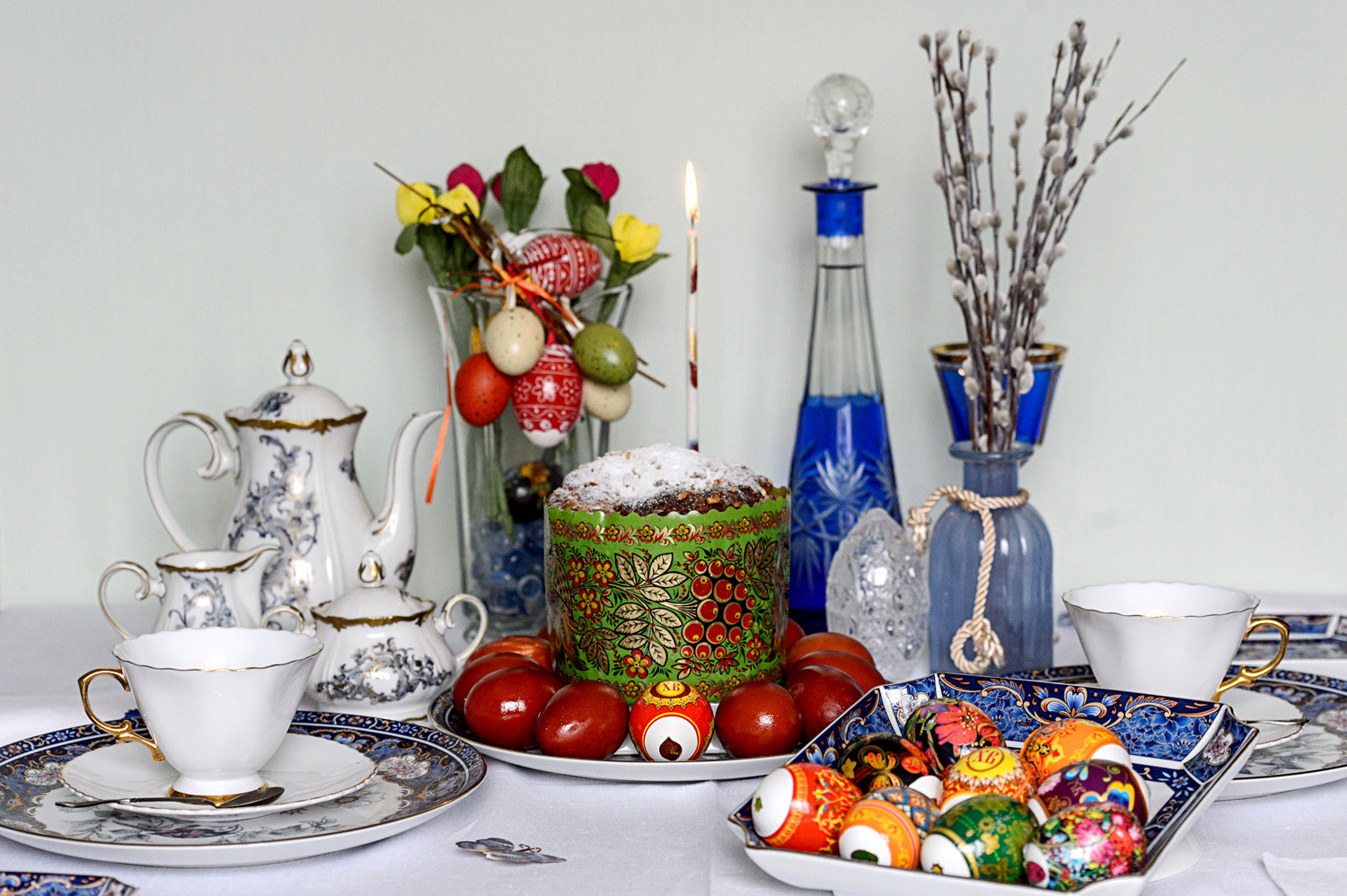
An Easter cake and eggs.
Evgenya Novozhenina/SputnikThis brunch usually involves paskha, a sweet pyramid-shaped pudding, makovnik, a delicious poppy seed cake, and kulich, a sweet bread topped with white icing and sprinkles. It is often accompanied by animal products that adherents have to deny themselves during Lent, such as ham, cheese, or milk. The only downside is the baking process: Most treats are made by Russians on Saturday, but since it’s still technically Lent then, they’re not even allowed to sample their own baked goods. Harsh!
Eggs are also a big part of the Russian Easter process. There is no tradition of chocolate eggs in Russia – instead, Orthodox followers stick to the more religious tradition of the natural Easter egg, which symbolizes Christ’s resurrection. Most traditionally, the eggs are colored red (using onion peel) to symbolize the blood of Christ, but stunning patterns can also be created using coffee, spinach, and beets. Find out how with our essential egg-painting guide.

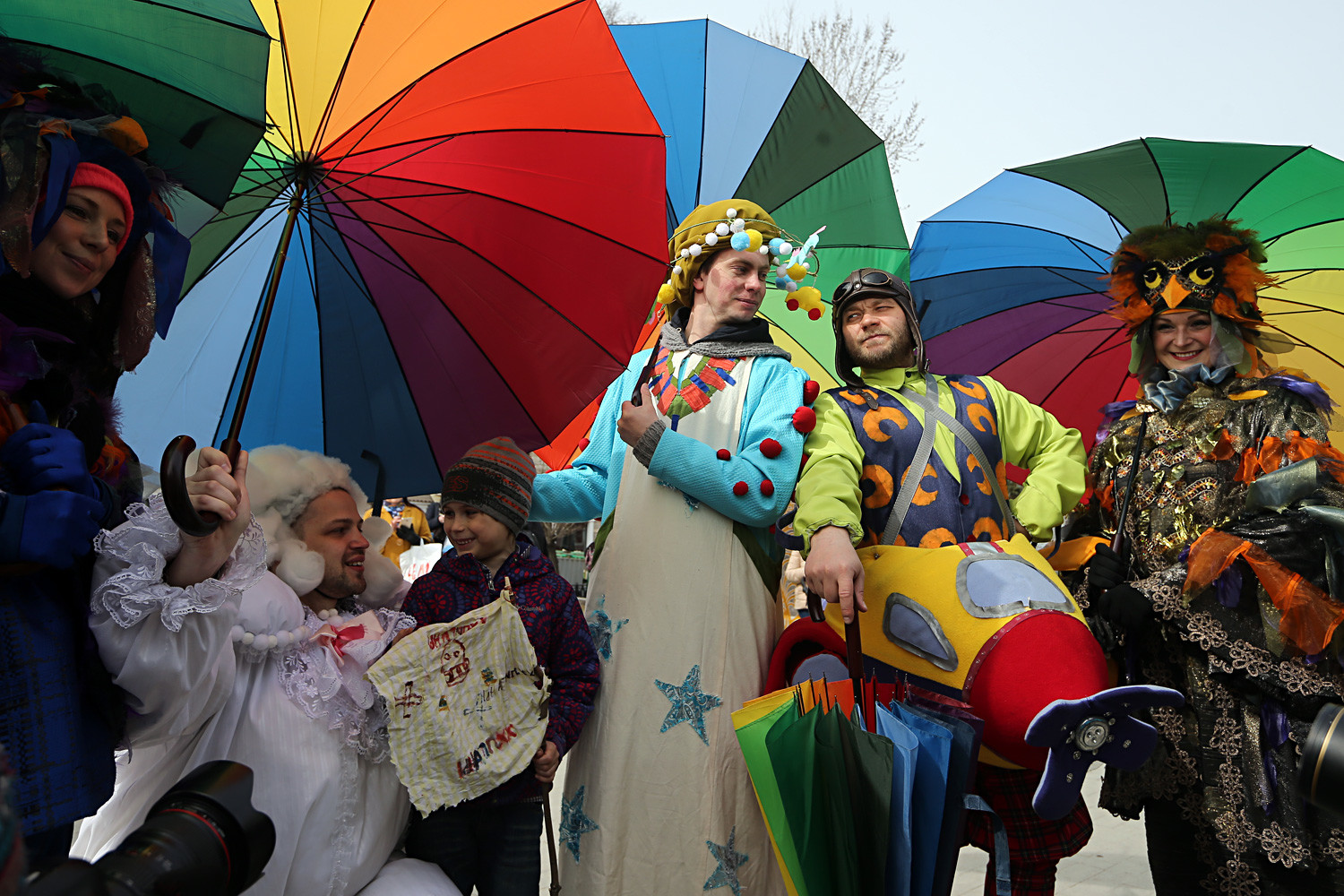
Participants in a spring parade held as part of the Easter Gift festival in Tverskoy Boulevard.
Dmitry Serebryakov/TASS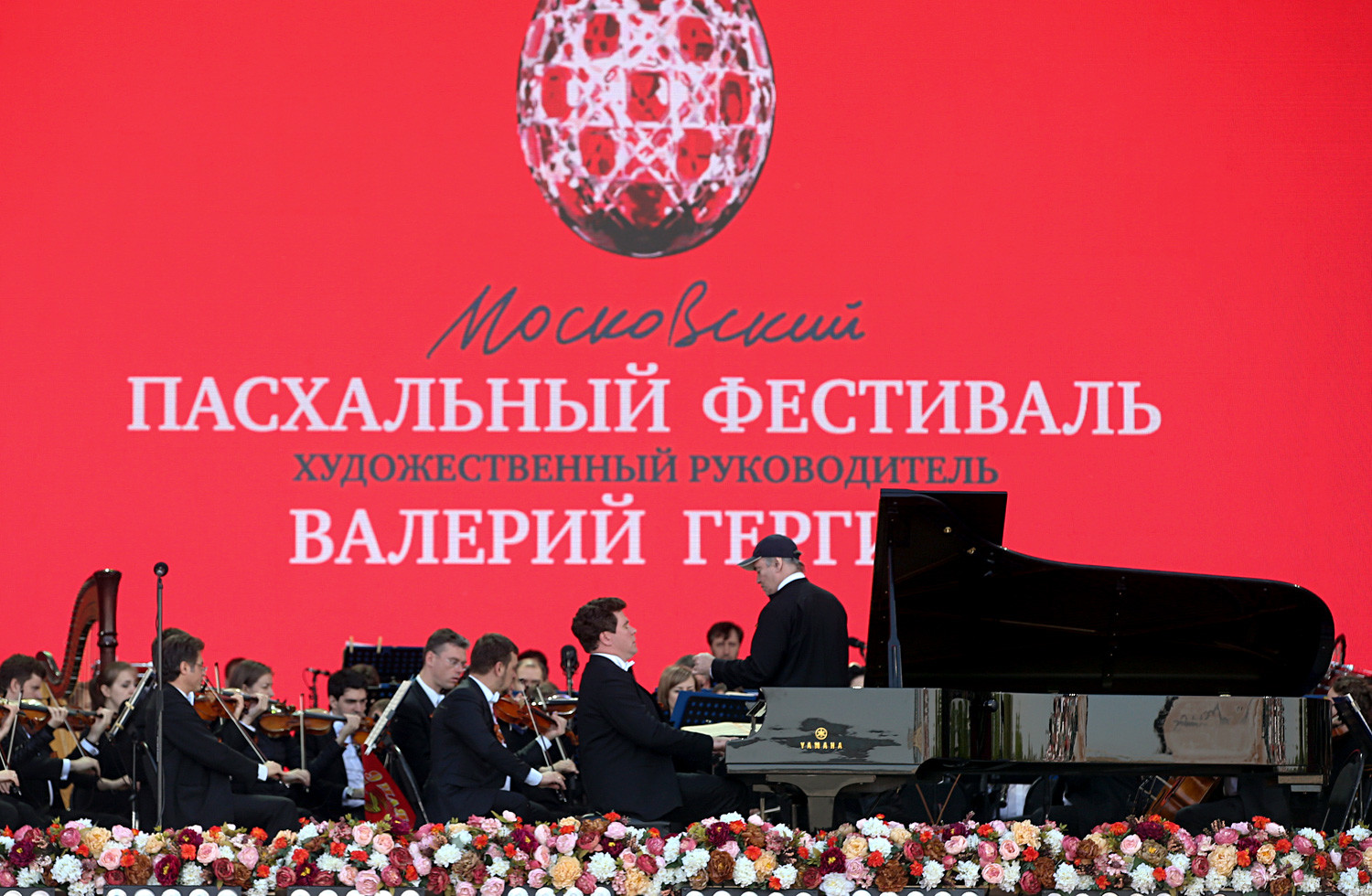
Valery Gergiev, Russian conductor, general director and artistic director of the Mariinsky Theatre, and Russian pianist Denis Matsuev perform during a Easter Festival on Moscow's Poklonnaya Hill.
Vyacheslav Prokofyev/TASSSince 2002, the Russian Easter Music Festival has been showcasing the best in Russian symphony, chamber music, choral music and bell ringing, inviting esteemed musicians from around the world to perform for the occasion.
Check out the schedule here.
If using any of Russia Beyond's content, partly or in full, always provide an active hyperlink to the original material.
Subscribe
to our newsletter!
Get the week's best stories straight to your inbox